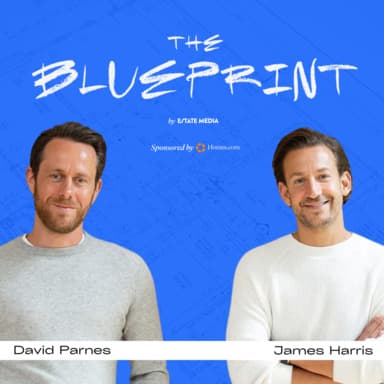(Hell No, We Don't!)
WELCOME
Hello, everyone! As the heat dome descends over Atlanta (and I give up all hope for my hair), summer is now fully upon us. I hope y’all have fun things planned!
Today we’re going to cover a topic I can’t stop thinking about because it’s as ever-present and oppressive as Atlanta’s humidity. I am talking about how institutional investors are snapping up everything they can get their greedy mitts on. Not sure how much of a problem it is in your area, but oh my stars and stripes, it’s a big one here, so we’re going to break down exactly what’s happening—and try to figure out what we can do about it. Who’s with me?

Me, every day from now until October.
THE REALITY OF REAL ESTATE
In December, Zillow sued Arizona Regional Multiple Listing Service (ARMLS) and Wisconsin’s Metro Multiple Listing Service, saying that they were engaging in unfair and anti-competitive practices by freezing out Zillow’s ShowingTime in favor of their own MLS-developed tour tools.
Specifically, the Zillow Group alleged: “Rather than competing on the merits," MLS Aligned and its members conspired to remove the ShowingTime integration and "create a monopoly in their regions for their own showing management platform." The complaint, which describes how Zillow offered ShowingTime access for free, refers to the removal as "anticompetitive and exclusionary."
But in the latest news, a settlement has been reached that will result in the dismissal of claims once resolved. Per the article, neither Zillow nor ARMLS had further comment on this settlement, so I’m curious as to how this impacts all of you who are impacted by this. Please do let me know.
(I suspect I know which side I’d root for.)
@glenndabaker On Friday we talk about Zillow and today is no dofferent… they’ve amended their terms of service to disclose that they’re stalking you… Of… See more
STORY TIME WITH GLENNDA
This Is A Crisis
To quote former Real Housewife Bethenny Frankel: this is a crisis.
I recently read that in 2011, no institutional entity owned more than 1,000 rental homes, yet by 2022, some owned as many as 700,000 single family units. As it stands now, the data points to one in every five single family homes being owed by institutional investors, whether it’s private equity or a hedge fund. (There’s a Venn diagram that likely explains the difference between private equity and hedge funds, but I don’t want y’all to die of boredom cancer, so we’ll just lump them all under the title of institutional investors.)
Institutional investors buying up houses are a particular problem in Atlanta. I know people will point to the data and say, “Oh, Glennda, as a percentage, their ownership is really low and companies like Blackstone have been beating the S&P with 10.4% returns.”
Let me tell you the reality of what I’m seeing—here in Atlanta, 60% of the homes in the $0 to $500,000 range are being snapped up by those institutional investors. And you know who spends between $0 to $500,000? Almost every new home buyer. And institutional investors are poised to own up to 40% of the entire housing market by 2030. They already control 11% of all the rental homes at present in Atlanta.
The dream of home ownership is beginning to slip away from your average Bobby and Susie. If you’re in the economic bracket of, say, a teacher, a police officer, or a nurse, it’s like the Hunger Games in trying to buy home.
What we’re seeing is the end result of Glass-Steagall having been repealed in 1999, which separated commercial banking from investment banking. Now that they’re free and clear to buy up whatever the heck they want, these institutional investors come in and they price Bobby and Susie out of the market, because Bobby and Susie can’t pay cash. Bobby and Susie need to finance their purchase. They are being outbid by the institutional cash buyers which in turn limits inventory and creates an affordability crunch. It’s like a snake swallowing its own damn tail.
This phenomenon isn’t unique to Atlanta—we’re seeing this all over the place, particularly in the Sunbelt. The New York Times covered a story about a neighborhood in Charlotte, NC, where half the homes in the Bradfield Farms subdivision were scooped up by institutional investors between 2021-2022, causing home prices to jump more then 48%.
“Well, why is that a bad thing, Glennda?” you might ask, thinking you’d be pleased as a pig in a puddle to be the buyer’s agent for an institutional investor (or a homeowner with 48% appreciation).
Let me tell you, there are a number of problems, starting with that homeownership is the number one way for families to build generational wealth. When Wall Street locks Bobby and Susie out of the market, they don’t get the opportunity for their piece of the American dream and to create a better life for their children. And any successful society needs a solid middle class.
Another problem is, when a neighborhood has too many rental homes owned by institutional investors, lenders become hesitant to underwrite mortgages there, and that makes it harder for sellers to sell to anyone but an investor. Again, no American dream for you, Bobby and Susie.
These institution-owned homes will likely never see the market again. If somehow they do, they will have such a lock on the $0 to $500,000 home market, they have the ability to inflate or deflate the market to whatever they need it to do.
As for the other owners in Bradfield Farms-type neighborhoods, they’re seeing renters come in who have no pride of ownership, with cars stacked along the street and unkempt yards. And those renters? They’re struggling to get their basic tenant services met, so it’s no picnic for them, either as profits are prioritized over service. While sellers in these places often hesitate to sell to the institutional investor, sometimes it’s the only choice after offers from people like Bobby and Susie fall through.
You may ask, “What do we do, Glennda?”
Well, there are a few solutions. In the long term, zoning laws need to be addressed, as that’s why more homes aren’t being built, so we each need to be more plugged into our municipalities. In the shorter term, it would benefit HOAs to set up rules to limit rentals in the neighborhood. And currently, there’s legislation proposed that will ban the institutional investors from buying single family homes. The End Hedge Fund Control of America Act was introduced to Congress back in 2023 and has since been referred to the Committee on Finance. (But as I learned from Schoolhouse Rock watching cartoons as a little girl, for a bill to become a law, there are more steps, but at least it’s in progress.)
I’ll be honest, I do not have all the answers. I wish I did. But the more we talk about the problem, the more likely we are to come up with a solution together.
@glenndabaker @Jeff Jackson is on the right track. But don’t be fooled… Wall Street is a very powerful force and the likelihood that you can get somethi… See more
GLENNDA’S GURU
Introducing Gretchen Coley
I’m delighted for y’all to meet agent extraordinaire Gretchen Coley of The Coley Group out of Raleigh, NC. Gretchen has been in the business for twenty-plus years and I love her because she’s just such a straight shooter. If y’all aren’t watching her TikToks or following her Instagram, consider yourselves missing out! So please join us for our chat and I hope you enjoy it as much as I did.
Thank you, Gretchen!
GLENNDAISM
Truth
If we don’t discuss the problem, we can’t find the solution.”
GO HOMES.COM WITH GLENNDA
I have a darling new listing in suburban Atlanta!

Homes like these (with taxes this low and school districts rated this high) are why people are flocking to the Atlanta area. With plenty of space, a fenced yard for privacy, quality finishes, and a first floor primary suite, it’s not going to be on the market for long.
Now, don’t forget if you’re an agent, with Homes.com, it’s always your listing, your lead and what could be better than that?






![WAS [the newsletter]](https://estatemedia.co/wp-content/uploads/2024/10/was-the-newsletter-min.jpg)


